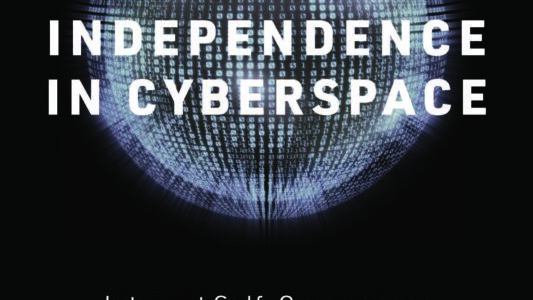New Book: Declaring Independence in Cyberspace
What is the role of the state in the governance of global cyberspace? For the past 25 years, that problem has led to conflict, negotiation and governance innovations. A new book by Milton Mueller now covers a critical part of…
Has the IGF lost the Plot?
The UN Internet Governance Forum will be held June 22-27 in Olso, Norway. The Program Committee for the conference, known as the Multistakeholder Advisory Group (MAG), released its selection of workshops for the 2025 IGF. The number of workshops was…
Is it time to privatize .US?
The US government has issued a Request for Information” (RFI) regarding the maintenance and management of the .US top level domain. Dot US is a country code domain (ccTLD) in a country dominated by generic top-level domains. Unlike the…
The debate over “multistakeholderism”
A CircleID post by Alexander Klimburg takes aim at my article, “The Power to Govern Ourselves,” delivered at the Gig-Arts conference in June. That speech, avaiable here on the blog, argued that “Multistakeholder does not describe a governance model. It…
Beyond Big Tech: A Manifesto for Big Government
The backlash against Big Tech has given political movements as diverse as populist nationalist conservatives and woke progressives a common cause. Occasionally political entrepreneurs try to catalyze a movement around this anti-Big Tech sentiment, writing manifestos calling for change. The…
The Disappointing NETMundial+10
The NETMundial 10th anniversary event was held April 23 and 24 in Sao Paulo, Brazil. As we wrote earlier, “Netmundial was a transformative moment in global internet governance. Inspired by the Snowden revelations, and amplified by the U.S. government’s announcement that it…
The Traditional Media’s Role in Sculpting Truth: the Originator Profile and Unfair Election Reports
As the global community grapples with various regulatory frameworks and policy recommendations put forward by states, social media companies, and academia, the pivotal role of traditional media and journalists often slips under the radar. The article discusses information integrity efforts…
Public and Private Power in Internet Content Regulation: ICANN and Registry “Voluntary” Commitments
Is censorship something that only happens when state actors do it, or can private actors engage in it as well? That crucial Internet governance debate is taking place in two venues: The U.S. Supreme Court, which will rule on two…
Fragmenting the Web: The EU’s Identity Power Play
The Internet Governance Project has signed on to a Joint statement of scientists and NGOs in opposition to Article 45 of the European Union’s eIDAS (Electronic IDentification And trust Services) regulation. Security researchers, digital rights groups and industry all oppose…
Withdrawal from Christchurch Call Advisory Network (CCAN)
With this statement, Georgia Tech’s Internet Governance Project is announcing its withdrawal from the Christchurch Call Advisory Network. The Christchurch Call was launched by New Zealand’s Prime Minister after a terrorist gunman attacked two mosques in Christchurch, NZ on March…
